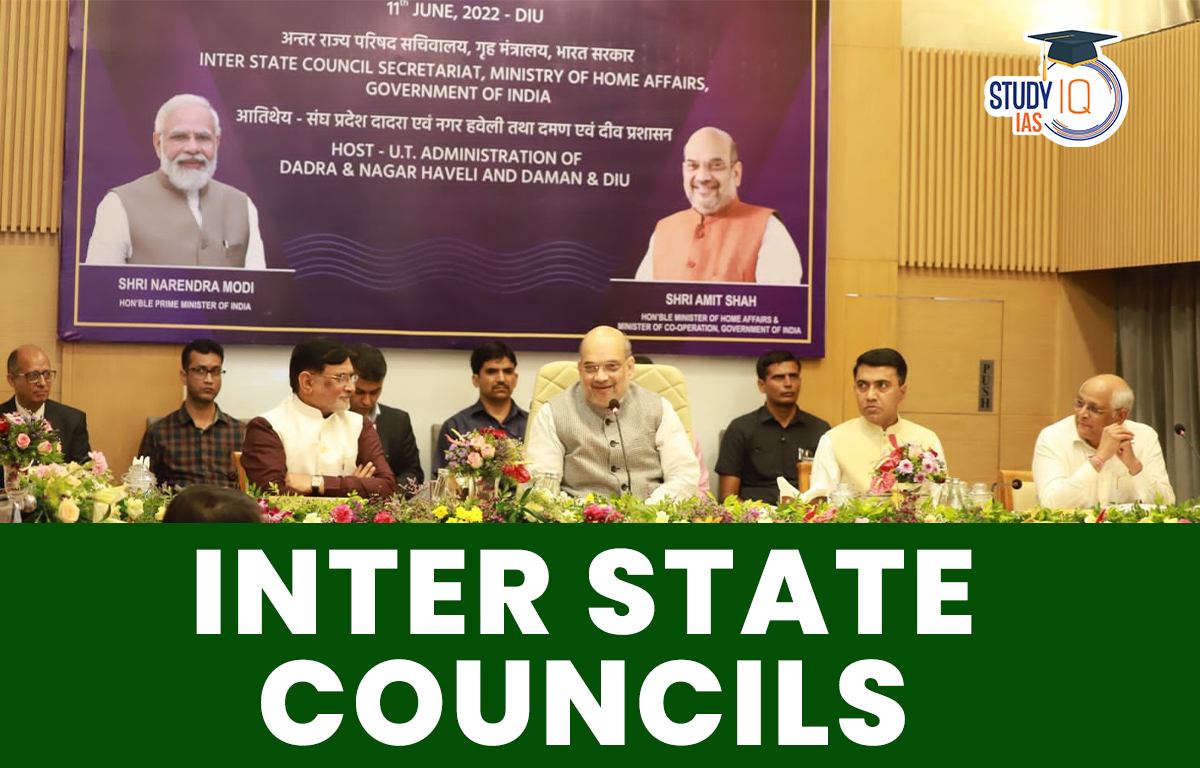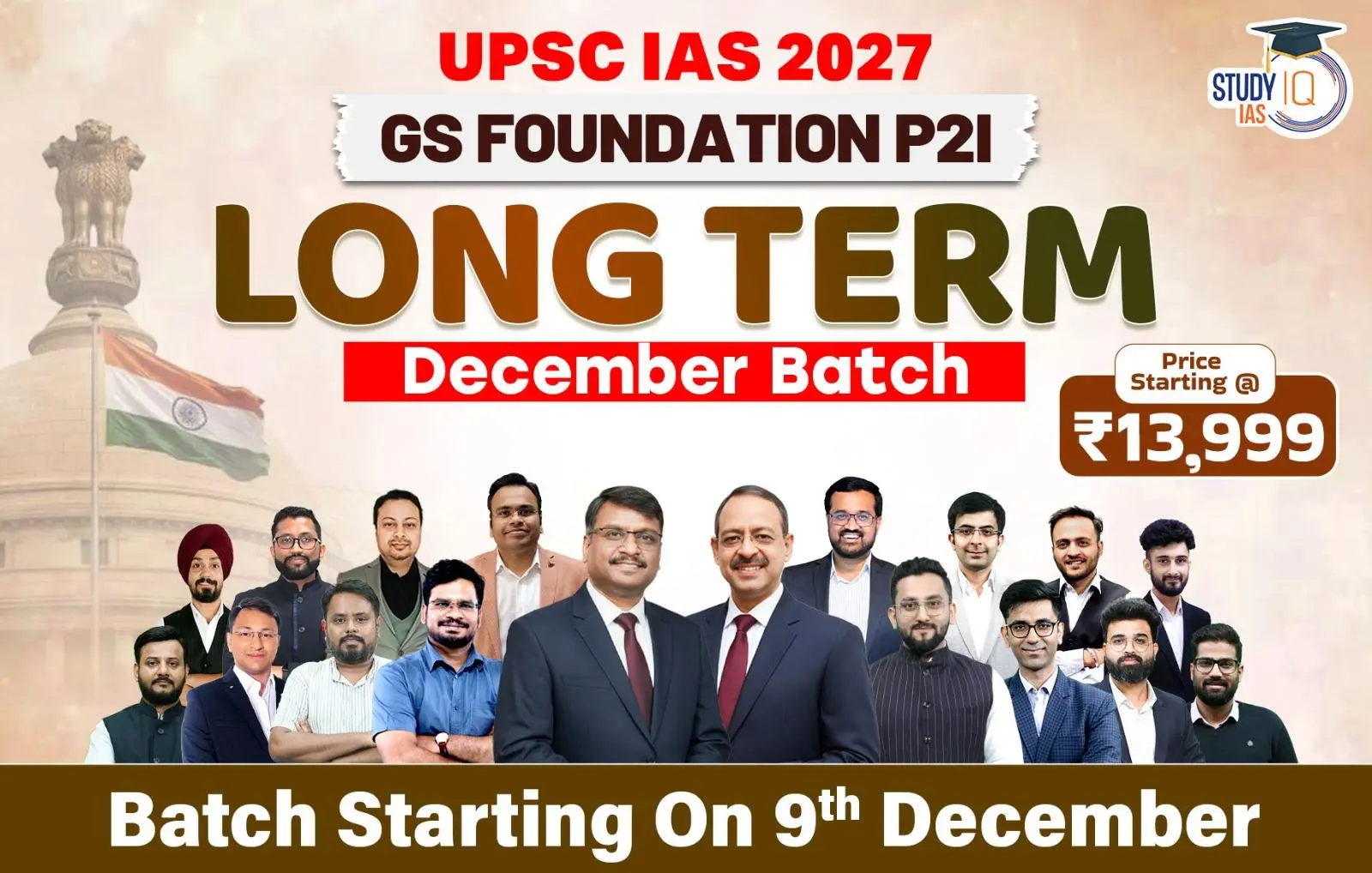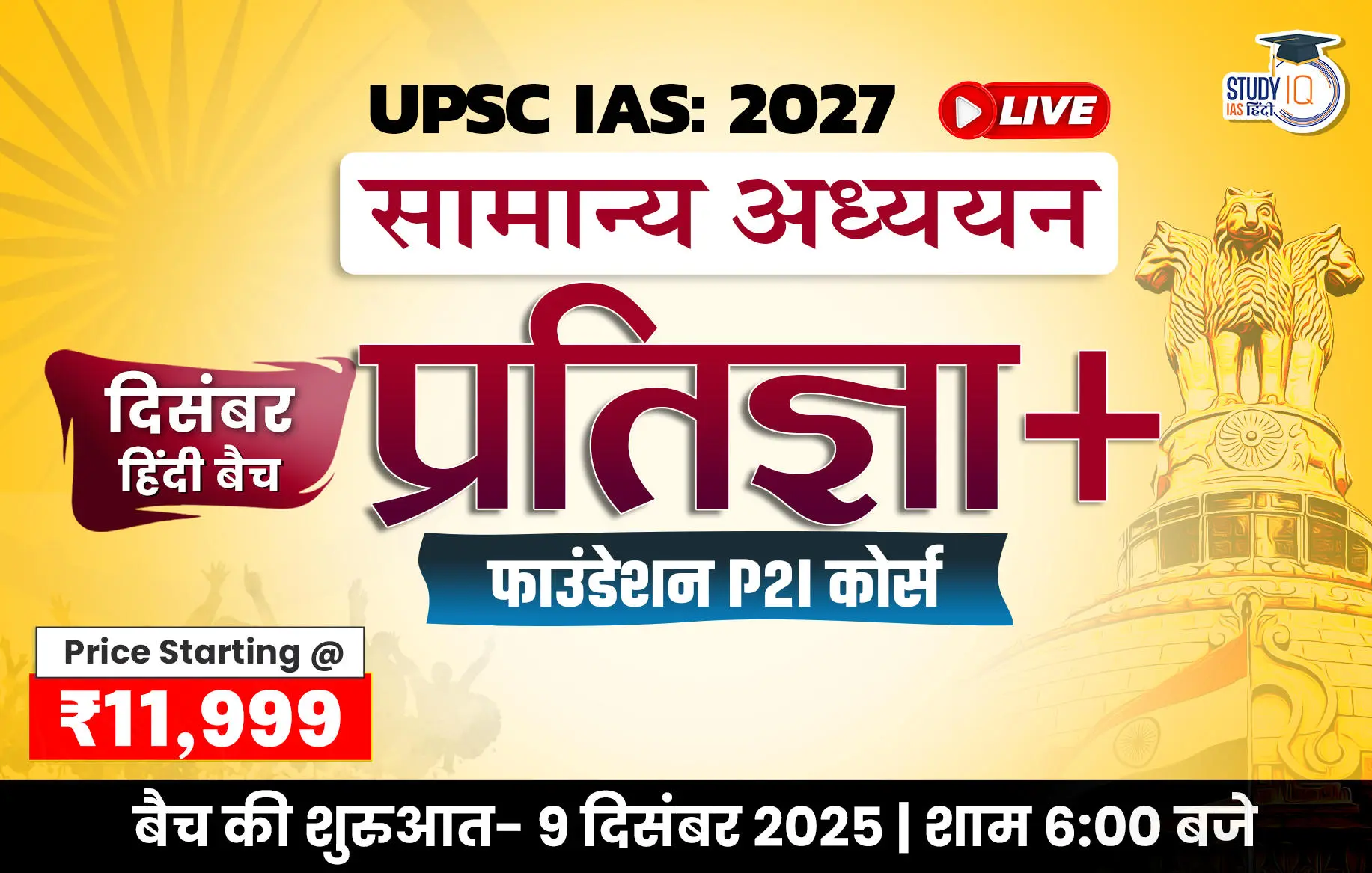Table of Contents
Inter State Council
The Inter State Council is a consultative body with the authority to examine and discuss issues of mutual interest between the Union and States or between States. To maintain coordination between state and center levels, this mechanism sets up norms for debate and discussions. Article 263 of the Indian Constitution (created in 1990) established the Inter-State Council. The President can create an Inter-State Council.
The Inter-State Council are covered under the Indian Polity and Governance section of the UPSC Syllabus. Students can also go for UPSC Mock Test to get more accuracy in their preparations.
| Inter-state Council Overview |
Status:
Establishment:
Purpose and Functions:
Sarkaria Commission Recommendation:
Meetings:
Standing Committee:
Established Councils (under Article 263):
Councils set up under Acts of Parliament:
|
Inter State Council & its Background
In 1988, the Government set up the Sarkaria Commission, led by Justice R.S. Sarkaria, to review the arrangements between the Union and States. The commission recommended creating a permanent Inter-State Council under Article 263 of the Constitution for better consultation and coordination.
Inter-State Council:
- A recommendatory body that investigates and discusses common interests between the Union and States or among States. It makes recommendations for better policy coordination and action, and discusses matters of general interest referred by its chairman.
- Meetings: The Council should meet at least three times a year.
- Standing Committee: There is a standing committee within the Council.
Inter-State Council Constitutional Provisions
According to Article 263 of the Constitution, the President may create the Inter-State Council, a constitutional body made up of Members of States. Despite Article 131’s restriction on the Supreme Court’s power, the judiciary can settle interstate disputes. One sort of such dispute may be decided by extrajudicial tribunals in accordance with Article 262. Similar to how Article 263 of the Indian Constitution outlines the administrative body’s inquiry and recommendations for resolving interstate issues.
| Constitutional Provisions |
|
Inter State Council and Article 263
On May 28, 1990, the President issued an executive order creating the Inter State Council (ISC) in accordance with Article 263 of the Indian Constitution. According to Article 263, a council should be formed “if it seems to the President at any time that the creation of a Council would serve the public interests.” This was in response to the advice of the Sarkaria Commission.
The provision contained in the study and recommendations on potential or impending disputes between states. Help all the states or maybe some of the discuss and investigate various issues. Making suggestions on diverse subjects ensures the synchronization of all policies, and every action taken in response to a recommendation needs to be approved by a presidential order. A council that could address the aforementioned recommendations is formed with the president’s assistance. It also outlines the duties that the council and their organization must carry out in accordance with the right procedure.
Inter State Council Composition
| Inter-State Council Composition |
|
Inter State Council Functions
- To support cooperative federalism, a strong institutional framework should be created and regular meetings organized for the council and zonal councils.
- These meetings will address current and new Centre-state and inter-state issues, and
- a robust system will be developed to monitor the implementation of their recommendations.
standing Committee of ISC:
- Established in 1996 for continuous consultation and processing of matters for the Council.
- Members: Union Home Minister (Chairman), Five Union Cabinet Ministers, Nine Chief Ministers.
- Assisted by the Inter-State Council Secretariat, set up in 1991, headed by a secretary to the Government of India. Since 2011, also serves as the Zonal Councils’ secretariat.
Functions:
- Continuous consultation and processing of center-state matters for the Council.
- Monitors implementation of Council’s decisions.
- Considers any other matters referred by the chairman or the council.
Inter State Council Bodies
The Inter-State Council is made up of three bodies:
The Zonal Council
It is a governmental organization that reports to the Inter-State Council. The State Reorganization Act of 1956 established five Zonal Councils to foster the habit of teamwork.
Jammu and Kashmir, Himachal Pradesh, Haryana, Punjab, Rajasthan, Delhi, and Chandigarh are all members of the Northern Zonal Council. The states of Bihar, Jharkhand, West Bengal, and Odisha are members of the Eastern Zonal Council. Gujarat, Maharashtra, Goa, Dadar and Nagar Haveli, and Daman and Diu are all members of the Western Zonal Council. Andhra Pradesh, Karnataka, Tamil Nadu, Kerala, and Puducherry make up the Southern Zonal Council. Assam, Arunachal Pradesh, Manipur, Mizoram, Nagaland, Meghalaya, Tripura, and Sikkim make up the North-Eastern Zonal Council.
Inter-State Trade and Commerce Council
Trade, commerce, and intercourse relations within Indian Territory are covered under Articles 301 through 307. The Constitution’s Part XIII covers it in detail.
Inter-State Water Disputes
Article 262 allows Parliament to handle disputes about water usage or management in interstate rivers. In 1956, Parliament passed the River Board Act and the Inter-State Water Dispute Act. The latter allows the Center to create an Ad Hoc Tribunal whose decisions are legally binding. The Ad Hoc Tribunals for Inter-State Water Disputes are: [additional details].
- Krishna Tribunal
- Kaveri Tribunal
- Narmada Tribunal
- Godavari Tribunal
Inter State Council Challenges
The Inter-State Council serves as a vehicle for collaboration, coordination, and the advancement of governmental initiatives. However, it does encounter difficulties at work. Although the Constitution established an Inter-State Council, it serves only as a recommendation body on matters that all states, some states, or the federal government have a shared interest in. Like in the case of the courts, their advice is not legally enforceable.
The fact that the Inter State Council is not a permanent constitutional organization for coordinating between the federal government and the state governments has also drawn criticism. Instead, the President created the Inter State Council when it seemed to him that doing so would be in the best interests of the general public. The Inter State Council has also suggested that they hold three sessions a year, but there was a ten-year break between their meetings from 2006 to 2016, and the eleventh meeting was conducted in 2016.
Inter-State Council UPSC
The Polity Syllabus for the IAS Exam includes an important section on the Inter State Council. The Inter-State Council must first establish a regular meeting schedule if it is to become the primary organization for managing inter-state conflicts. The Indian union now has an institutional void that has to be rectified before interstate tensions spiral out of hand. Additionally, the council needs a permanent secretariat to make sure that its regular meetings are more productive. Students can read all the details related to UPSC by visiting the official website of StudyIQ UPSC Online Coaching.


 SLAPP Suits: Meaning, Examples, Impact o...
SLAPP Suits: Meaning, Examples, Impact o...
 Finance Commission of India, Articles an...
Finance Commission of India, Articles an...
 High Number of Pending Cases in Supreme ...
High Number of Pending Cases in Supreme ...

























